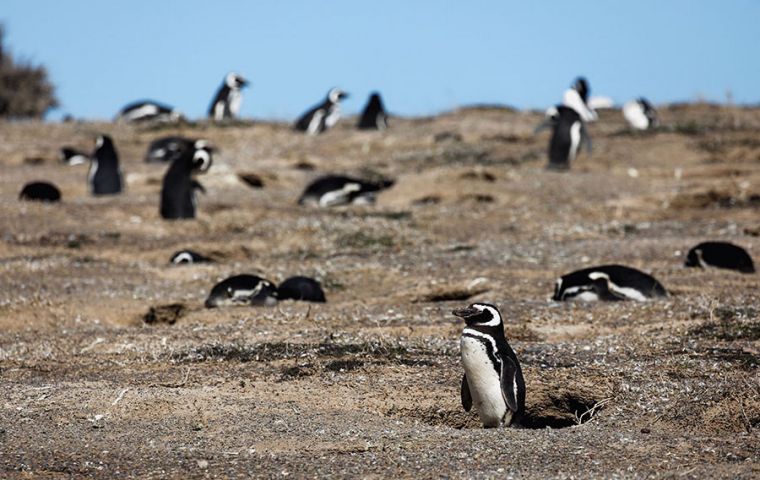MercoPress. South Atlantic News Agency
Punta Tombo penguin massacre: Conviction upheld on appeal
 The defense's proposal of land ownership handover was turned down
The defense's proposal of land ownership handover was turned down A Court of Appeals is the city of Trelew in thee Argentine province of Chubut upheld this week the conviction of Ricardo La Regina, a cattle rancher found guilty of environmental damage and animal cruelty for using heavy machinery to open a road in a protected area, causing the death of 240 Magellanic penguins and destroying their nests in the Punta Tombo reserve.
His legal team attempted to offer land donation in exchange for probation, but the court rejected it. La Regina was sentenced to three years of suspended imprisonment, and his backhoe loader was confiscated. He must also contribute to ecosystem restoration efforts.
The case sets a historic precedent in Argentine environmental justice, highlighting the challenges of prosecuting environmental crimes and proving that convictions are possible despite economic pressures.
The court found that La Regina was aware of the damage he was causing and also banned him from driving large vehicles in sensitive ecosystems. He was also compelled to participate in the environmental restoration efforts at La Perla ranch and ordered not to undertake any construction without official environmental impact approval.
Environmental groups, including Greenpeace Argentina, praised the ruling, calling it a landmark case for wildlife protection and urging stronger national laws against these crimes.
Judges Adrián Barrios, Cesar Zaratiegui, and Alejandro Defranco unanimously upheld the Nov. 20, 2024, decision by a lower court convicting La Regina of environmental damage and animal cruelty after using heavy machinery to open a road on his property, affecting a protected area and causing the death of 240 Magellanic penguins and the destruction of their nests in a nature reserve.
Defense lawyer Federico Ruffa's plea bargain deal was turned down at the request of Chief Prosecutor Florencia Gómez, who insisted La Regina “was aware of the damage he was causing.”
“The trial highlighted the difficulties inherent in environmental crime cases. The scarcity of physical evidence, the remoteness of the area, and the complexity of the investigations represented considerable challenges for the prosecution,” it was also argued.
The ruling was deemed “a milestone in wildlife protection,” setting a “precedent for environmental justice in the country.” It also “demonstrates that it is possible to achieve convictions in cases of environmental crimes, even when there are economic pressures at stake.”




Top Comments
Disclaimer & comment rules-

Read all commentsWell done Chubut!
May 28th, 2025 - 11:31 am 0Commenting for this story is now closed.
If you have a Facebook account, become a fan and comment on our Facebook Page!